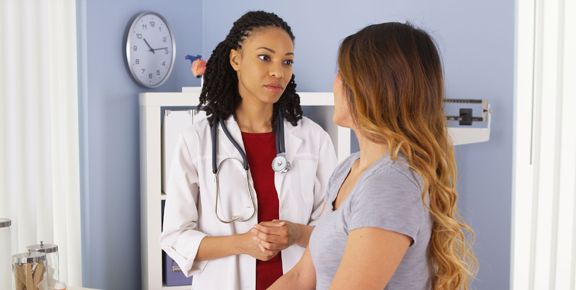PCOS or Polycystic Ovary Syndrome is a disorder of the ovaries that manifests as a group of symptoms
resulting from hormonal imbalances in the affected women. Your doctor may also refer to PCOS as
hyperandrogenic anovulation or Stein–Leventhal syndrome. This condition is actually a consequence of
both environmental and genetic factors. Today, PCOS is the commonest endocrine malady likely to
affect women between 18 to 44 years of age. So much so that, nearly 5-10% of the women in this age
bracket are affected by PCOS at some point in their lifetime.
What Causes PCOS?
The precise cause of PCOS is still uncertain. However, this disorder also has a strong genetic tendency
and is inclined to run in families. It is also believed that several environmental factors like obesity and a
lack of physical exercise may increase a woman’s chances of developing PCOS, especially when she has a
family history or a close family member suffering from this disorder.
What Happens in PCOS?
PCOS is actually a set of symptoms affecting multiple organs. There are nearly 28 symptoms that are
attributed to PCOS due to its associated underlying hormonal imbalances. Different women are likely to
suffer from different sets of symptoms. Around 15% of the women affected by PCOS show multiple fluid
filled cysts on their ovaries that are visualized with a pelvic ultrasound. Menstrual symptoms may vary
from heavy or irregular periods to no periods at all. PCOS also produces symptoms like excessive body
and facial hair growth, oily skin, and acne that are a result of increased levels of the male hormones or
androgens. Some women also develop dark, velvety, and thick patches on their skin or brownish skin
tags known as acanthosis nigricans. These patches are commonly seen in the armpits, around skin folds,
and below the breasts. Central obesity and insulin resistance are some other symptoms of PCOS.
Unfortunately, PCOS is also one of the foremost causes of infertility in women today. This is mainly due
to the irregular or complete lack of ovulation and increased male hormones in the blood stream.
How is PCOS Treated?
PCOS is incurable. However, its symptoms may be controlled with certain medications. The most
important factor in treating PCOS is weight loss, especially in obese or over-weight patients. Even a loss
of 5 kg of a woman’s overall weight is likely to result in a considerable reduction in her symptoms.
Menstrual irregularities may be treated with the help of oral contraceptive pills to regularize the
periods. Metformin is also likely to help with the insulin resistance in such patients. Anti-androgenic
medications may help with certain symptoms and infertility by improving ovulation. Other symptoms
like acne and skin eruptions are treated with the usual acne and hair removal treatments.
PCOS has a wide variety of treatments to keep up with the wide variety of symptoms it produces. Hence,
no two women may be given the same treatment for PCOS. It’s best to speak to your doctor about the
most suitable treatment for your PCOS symptoms.
